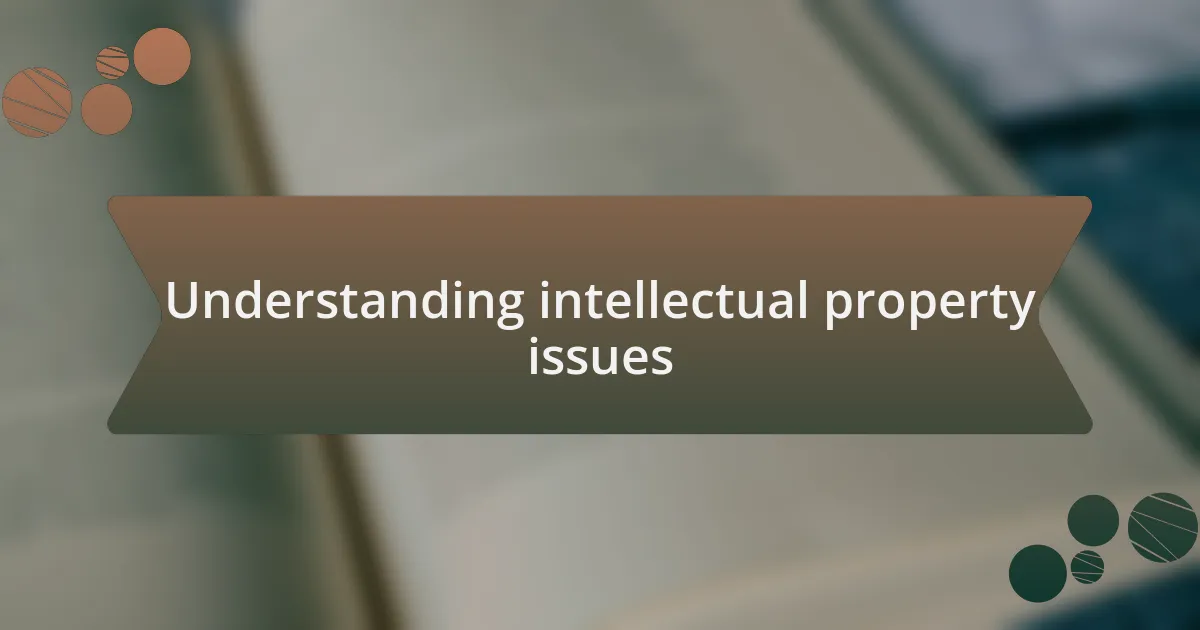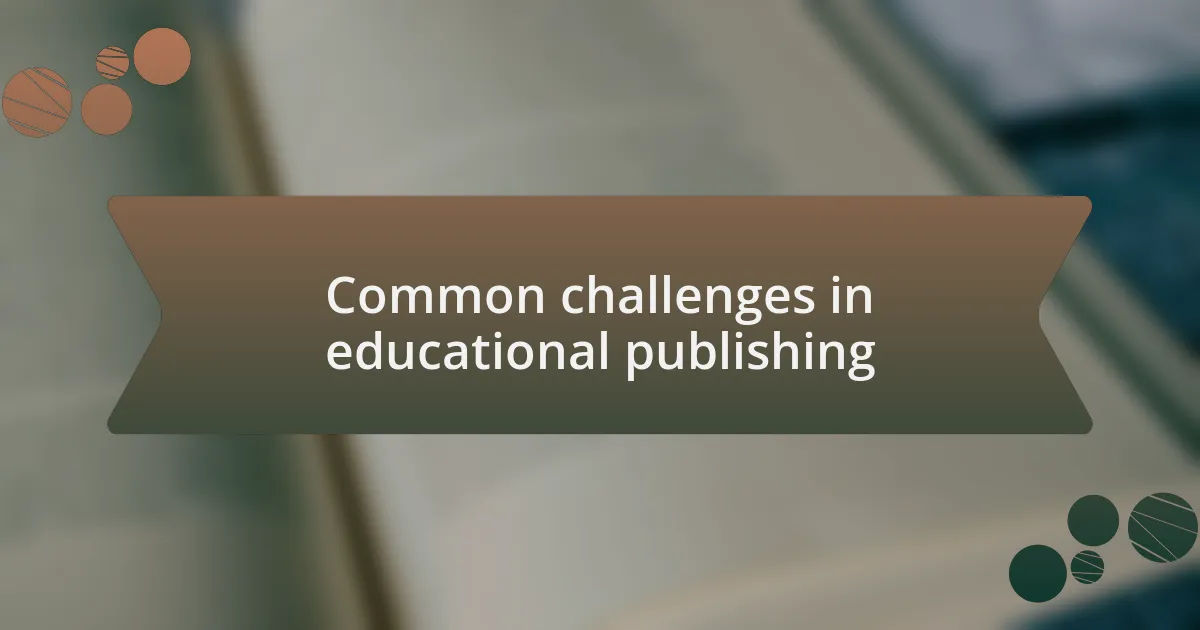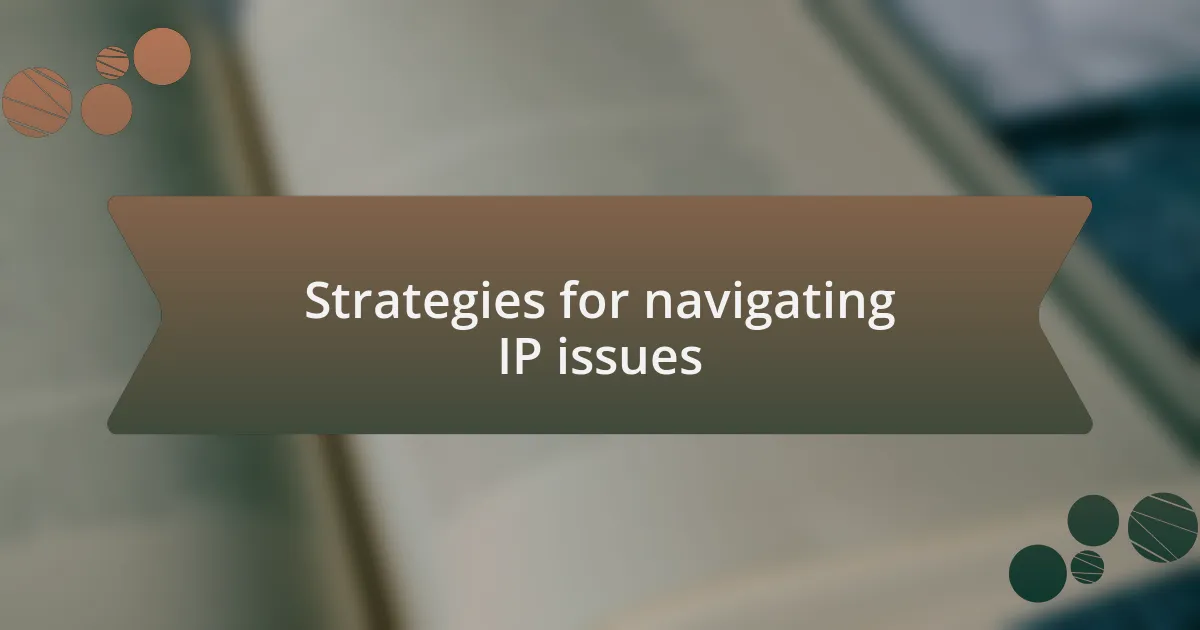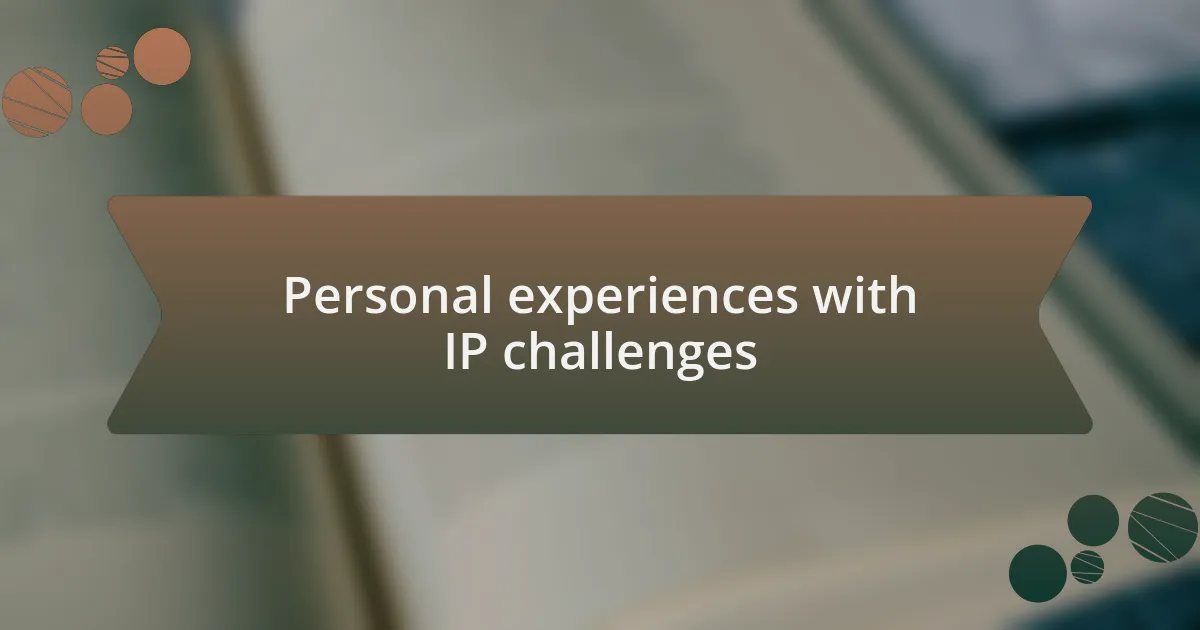Key takeaways:
- Understanding different types of intellectual property (IP) is crucial for educators and publishers to protect their work effectively.
- Common challenges include unintentional copyright infringement, navigating licensing agreements, and adapting to rapidly changing technology.
- Strategies for addressing IP issues include staying informed about copyright laws, networking for shared knowledge, and creating original content.
- Personal experiences highlight the significance of diligence in sourcing materials, open communication in potential disputes, and the importance of clear agreements in collaborative projects.

Understanding intellectual property issues
Intellectual property (IP) issues can seem daunting, but they are essential to protecting creativity and innovation. I remember when I first encountered a copyright dispute over some educational material I had developed. It’s a challenging situation because, while you want to protect your work, you also need to navigate the complex landscape of laws and regulations that can sometimes feel overwhelming.
When I faced that copyright challenge, it sparked a lot of questions in my mind. What exactly is owned by whom? How do you prove originality? This uncertainty can be nerve-wracking, especially for educators and publishers who rely on their material’s integrity. I realized that understanding the difference between copyrights, trademarks, and patents is crucial for anyone involved in educational publishing. Each type of IP serves a different purpose, and knowing the distinctions can help you avoid legal pitfalls.
Moreover, the emotional weight of safeguarding your intellectual property shouldn’t be underestimated. When I finally secured the rights to my material, it felt like reclaiming a piece of myself. Protecting your ideas isn’t just about the legalities; it’s about valuing your hard work and dedication. How are you protecting your creative endeavors? This reflection can guide you in establishing your own IP strategy.

Common challenges in educational publishing
One prevalent challenge in educational publishing is the constant fear of unintentional copyright infringement. I recall a moment when I used a photograph in my material, only to discover later that it was protected by copyright. It’s a stark reminder that even well-meaning intentions can lead to significant legal complications. This kind of oversight can create a layer of anxiety for educators and authors who genuinely want to enhance their resources.
Another issue lies in the accessibility of materials. In my experience, the balance between providing free educational content and respecting the copyrights of others is delicate. When I attempted to share curated content for my students, I struggled with licensing agreements that were often confusing and constraining. Have you faced similar dilemmas when trying to share valuable resources? It’s frustrating, but that’s why understanding licensing options, like Creative Commons, is essential for anyone in this field.
Lastly, the rapidly changing technology landscape presents a unique set of hurdles. I remember when I had to adapt my materials for an online learning platform, only to be met with new licensing terms that had emerged suddenly. Technology evolves quickly, and so do the rules surrounding IP in digital spaces. How can we keep up? This ongoing adjustment is not just a practical challenge; it can feel like a race against time to protect what we create.

Strategies for navigating IP issues
One effective strategy I’ve found for navigating intellectual property issues is to stay informed about copyright laws and trends. When I first began publishing educational materials, I created a simple checklist to reference as I prepared content. This practice not only kept me organized but also helped prevent overlooking critical legal aspects—I can’t stress how pivotal that has been in avoiding pitfalls.
Networking with other professionals in the field is another strategy that I highly recommend. I remember attending a workshop where an experienced educator shared their journey through a copyright dispute. Their insights on negotiation strategies and understanding fair use transformed my approach. Have you considered the power of community in tackling these issues? It’s incredible how collective knowledge can guide us all.
Lastly, I advocate for creating original content whenever possible. While it can be challenging, the sense of ownership and pride in my work is unmatched. I once devoted an entire summer to crafting an interactive eBook, and I’ve never felt more empowered. Sharing something that’s uniquely yours not only mitigates IP issues but also resonates more deeply with your audience. How fulfilling is it to see your ideas take shape?

Personal experiences with IP challenges
Dealing with IP challenges is not just a theoretical concern; it’s a reality I faced firsthand. I remember a time when I unknowingly used an image from the internet for a resource I was developing. When the copyright holder reached out, it felt like a punch to the gut. It taught me a crucial lesson about diligence and the importance of sourcing material carefully—an experience I hope others can learn from.
I also encountered a significant challenge when a colleague suspected my work resembled their ideas closely. While we ultimately worked through it amicably, the tension was palpable. It made me realize how vital open communication is in our field. Have you ever navigated a misunderstanding where clarifying intentions brought relief? I learned firsthand that addressing concerns openly can preserve both relationships and creativity.
In another instance, I collaborated on a project that involved multiple contributors. We faced hurdles when it came to deciding who would hold the rights to certain materials. I remember feeling overwhelmed but recognizing the value of clearly defined agreements. This experience pushed me to appreciate the importance of transparency and setting boundaries early on. How can we ensure that everyone feels respected and valued in collaborative efforts? Through honest dialogue and documented agreements, we can navigate these murky waters together.